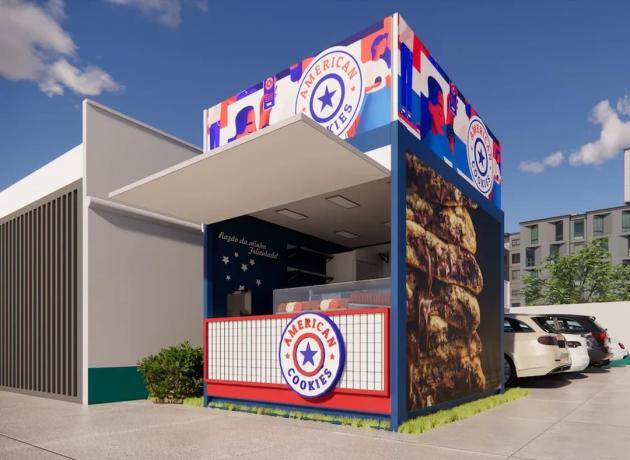Brazilian singer, composer and guitarist born in the Rio neighborhood of Saúde, RJ, one of the most famous singers Brazilians of all times, with a career spanning 35 years of uninterrupted activity, called the King of Voice. Son of the Portuguese immigrant merchant José Alves and Isabel Morais Alves, he had four brothers, Ângela, José, who had a beautiful voice, but died when 18 years old, victim of the Spanish flu, Lina, who worked as a magazine and radio actress and in her artistic life, adopted the pseudonym of Nair Alves, and Carolina. He spent a quiet childhood on the streets of his neighborhood and at the age of nine the family moved to Rua Evaristo da Veiga where he started to attend school. Around that time, he used to watch the rehearsals of the Military Police Battalions music bands located in the neighborhood, and already showed a taste for singing, and began to learn guitar with his sister Nair/Lina.
He was employed at the Mangueira hat factory (1916) where he stayed for approximately a year. With the death of his father (1919), and the marriage of his sisters, he then began to live in the company of his mother and had his first audition with conductor Antônio Lago, father of actor Mário Lago. He recorded his first album and was successful at the carnival (1920) and in the same year he married Perpétua Guerra Tutoya Ceci, and a week later they were already separated. In the same year he met Célia Zenatti, dancer and actress, with whom he lived for 28 years, until the end of his life. He started recording at Odeon and became the label's biggest star, establishing himself as record holder in recordings and record sales. He was the first Brazilian artist to record using the electrical system, inaugurated by Odeon (1927).
Shortly thereafter, he transferred to Parlophon, at which time he adopted the pseudonym Chico Viola and made his radio debut, working at Rádio Sociedade do Rio de Janeiro (1928). He sang on several radio stations besides Sociedade, such as Mayrink Veiga, Cajuti and Nacional. He started to form a duo (1930) with singer Mário Reis, achieving great success, recording together a total of 12 albums at Odeon. He toured Buenos Aires (1932) with Mário Reis, Carmen Miranda, Luperce Miranda and Tute. The following year, he signed a contract with Rádio Mayrink Veiga and stood out with the recording of Fita yellow, by Noel Rosa, his last recording with Mário Reis, who was a great success at the carnival (1933). He left Odeon (1934) and moved to RCAVictor. He made his first film appearance in Alô, alô, Brasil (1934) and later appeared in Alô, alô, Carnaval (1936).
He was responsible for the first recording of Aquarela do Brasil (1939), by Ary Barroso, with anthological arrangement by Radames Gnatalli and participated in the film Laranja da China (1940). He transferred to Columbia Records where he recorded a total of 14 albums. He reappeared in the cinema in Berlin in Batucada and Fallen from Heaven (1944) and He fell in love with Iraci, his companion for the last four years of his life. He died charred, at the height of success, victim of an accident on the Rio-São Paulo road, on the Dutra highway, when he was returning from a trip to São Paulo, with his friend Haroldo Alves at his side, in a Buick that he himself drove, he was hit by a truck that was going against the traffic and the singer died instantly, near the city of Pindamonhangaba (SP), between Pindamonhangaba and Taubaté, SP, on September 27th (1952), at 54 years old. His burial, in the cemetery of São João Batista, Rio, was attended by half a million people, when for the first time a fire brigade car would transport the dead.
Three years after his death, the film Chico Viola Not Died was released, with Cyl Farney in the role of the singer. The most famous of our popular singers, O Rei da Voz, as he was also known nicknamed (1933) by César Ladeira, made 983 recordings. He was the singer who recorded the most in Brazil and was also a good composer. Created more than 130 songs. He was one of the most charismatic singers of all time and moved everyone who saw him sing, even his musicians. Among his hits were musical highlights: Opé de Anjo (1919), Malandrinha (1926), A voz do violão (1928), If you swear (1930), What will be of me (1931), Formosa (1932), Caboca ( 1933), I gave you my heart (1934), Without her (1935), Far from the eyes (1936), Serra da Boa Esperança (1937), Brazil (1939), Dama das camellias (1939), Where the blue sky is bluer ( 1940), Canta, Brazil (1941), I Dreamed You Were So Beautiful (1941), Pink Sky (1943), Expeditionary Song (1944), Let's Walk (1947), Farewell (1947), Empty Chair (1949), Confetti ( 1951) and Song of child (1952).
Figure copied (and cropped) from the ARY BARROSO website
http://www.geocities.com/TheTropics/Cabana/1244/
Source: http://www.dec.ufcg.edu.br/biografias/
Order F - Biography - Brazil School
Source: Brazil School - https://brasilescola.uol.com.br/biografia/francisco-de-morais-alves.htm

